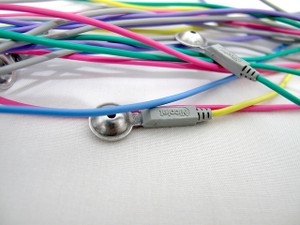Researchers at Mclean Hospital and Harvard Medical School say that transcutaneous electric acupoint stimulation (TEAS) is a treatment that may help opiate addicts achieve longer abstinence.
TEAS works similarly to acupuncture, but instead of inserting small needles as in conventional acupuncture, TEAS practitioners affix electrodes to specific areas of the body and use electric current to stimulate the nervous system.
The researchers ran a study at a private addiction treatment hospital (Mclean Hospital) to evaluate how well TEAS might work to help people stay clean after withdrawing from opiates in a brief inpatient detoxification protocol.
Study subjects were assigned to one of 2 groups and all subjects received three daily half hour TEAS sessions over a 4 day period.
- Half of the study subjects were assigned to a placebo group. This group thought they were getting a full course of TEAS treatments, but received only very low amplitude stimulation (1mA), which is non-detectable.
- Half of the study subjects received true TEAS treatment, with a maximum tolerable electrical stimulation at 15mA
- All study subjects also received a brief course of buprenorphine, to aid in the detoxification
To evaluate the impact of the TEAS, the researchers followed up with each subject over the proceeding weeks to check for return to drug use, the intensity of withdrawal symptoms experienced, general levels of physical health and tolerance to pain.
The Results
- Subjects who received real TEAS were more than twice as likely to maintain opiate abstinence for the first 2 weeks. 65% of subjects who received the simulated TEAS relapsed back to opiate use within the first 2 weeks, compared to only 29% of those who received true TEAS.
- Subjects who received true TEAS were also much less likely to return to other drug use. In the first 2 weeks, 75% of those who received placebo TEAS returned to at least some drug use while only 35% of those who received real TEAS returned to any drug use.
- Subjects who received true TEAS reported greater better pain tolerance and overall physical health than the subjects who had received placebo TEAS. The researchers concede that this effect may have been due to the greater levels of abstinence achieved by the real TEAS group.
- There was no difference in the intensity of withdrawal symptoms between the 2 groups. Previous studies have shown that TEAS can reduce withdrawal symptoms intensity, but this effect may have been blunted by the corresponding use of buprenorphine by all study subjects.
Commentary
Due to the positive results of the experiment the researchers call for further clinical study on the benefits of TEAS as addiction treatment. Based on these preliminary findings they say that TEAS appears to be an affordable and non intrusive intervention that could work well when applied as an adjunct treatment in an inpatient opiate detoxification program.1- References
Page last updated Sep 28, 2011


